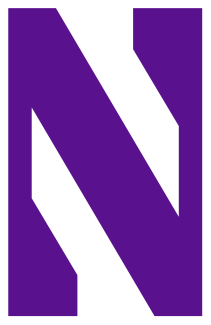CAROLINA ROOTS
Like apples, inspiration didn’t fall far from Ruffin’s tree. Her parents, Randy and Kembra, and brother, Zaire, inspire her the most. She describes her strong support system as a true blessing that keeps her focused.
Ruffin’s love for sports started from an early age. Randy Ruffin trained his children outside their home in Westminster, Colorado. He was their coach and always made sports enjoyable. Zhane Ruffin said she got her competitive spirit, however, from their mother. Kembra Ruffin grew up playing against six brothers.
“Having parents that are both your cheerleaders and your competition is awesome because you get much more practice in,” Ruffin said.
Despite being the younger sibling, Zaire Ruffin pushed his older sister to be the best in everything she did. In turn, Zhane Ruffin found it important to be a leader and positive influence on him.
Zhane Ruffin began playing lacrosse after her family moved from Colorado to North Carolina. After Ruffin expressed her displeasure with competitive basketball, her mother signed her up with a lacrosse program in Wilmington.
“She made me do my own research about lacrosse, its rules and equipment I needed,” Ruffin said. “From the very first practice, I fell in love.”
Ruffin transitioned into the halls of Emsley A. Laney High School, a place that is synonymous with its most famous alumnus, Michael Jordan. As one of two freshmen and Black players on the lacrosse team, Ruffin developed a competitive grit against her peers. She was a four-year starter and determined to play at the collegiate level.
ONE LOVE
A 5-foot-3 attacker and midfielder, Ruffin played for four seasons at Methodist University, a Division III program in Raleigh, North Carolina. She was the team’s captain as a senior in 2016. Methodist’s sport management program and diverse lacrosse roster attracted Ruffin to the school. There were six Black players on the team when she was recruited.
“By far, Methodist had the most diverse team I had ever seen,” Ruffin said. “I wanted to be a part of a team where I could totally be myself and feel comfortable playing the game that I love!”
Ruffin described her student-athlete experience as amazing and satisfying. She enjoyed Methodist’s welcoming atmosphere, an avid fanbase that supported each respective sport and professors who understood the commitment of student-athletes. She also participated in the school’s SAAC chapter while serving as the sport management club president and National Society of Leadership and Success chairperson.
As a freshman, Ruffin earned an assistant sports marketing director internship at nearby Fayetteville State University.
“Coming from a PWI (predominantly white institution) and interning at an HBCU gave me insights into both worlds from the student-athlete and sports administrator perspectives,” Ruffin said. “I loved working at Fayetteville State because the entire athletic department and CIAA staff took me in, showed me the ropes and served as mentors. That family atmosphere wasn’t felt again until my coaching career began at UDC.”
Ruffin spent her summers serving as program director with One Love Tennis until her graduation in 2016. The Wilmington-based tennis and educational nonprofit was founded in 2013 by Lenward “Lenny” Simpson, a hall of famer who broke World Team Tennis’ color barrier in 1974. Ruffin enjoyed coaching a non-traditional sport while directly impacting children from underserved communities as Simpson did.
“It was super rewarding to know that giving my time and knowledge made such a big difference,” Ruffin said. “They were always excited to see me, and I saw their confidence grow as they came out of their shells. Some kids were previously disinterested in sports, but they later fell in love with tennis. Those results made me want to become a lacrosse coach.”
Ruffin would eventually coach several lacrosse clinics at the local Boys and Girls Club.
In 2017, Ruffin entered Georgetown’s Sports Industry Management program and earned her master's degree thereafter. Georgetown helped her develop and explore personal leadership styles during the program’s hands-on training and collaborative assignments, she said.
“As a coach, it's important to not only find your own voice and vision but to listen to, lead and teach others who are following your voice and vision,” Ruffin said. “The program’s structure and curriculum allowed me to find my own voice and evaluate how I make positional contributions while practicing active listening of others.”


























